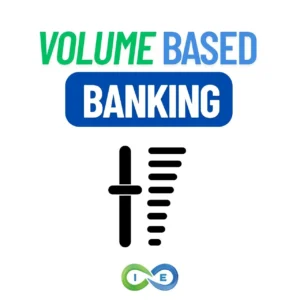We at I&E want to thank you for stopping by our Ethos Life review. We also offer life insurance from the best companies in the U.S., which makes us a competitor to Ethos. However, we have done our best to present as an unbiased a review of Ethos as possible.
Table of Contents:
- About Ethos Life
- Services Provided
- Types of Insurance Offered
- Application Process
- Ethos Life Pros
- Ethos Life Cons
What is Ethos Life?
Founded in 2016 by two Stanford Business School graduates, San Francisco-based Ethos Technologies, Inc., sells life insurance online under the name Ethos Life (or just “Ethos”). The company acts as a broker and administrator of the policies it markets, with a business model built around using technology to streamline the application process.
Though still a relatively young business, strong investor support has helped Ethos secure a firm foothold in the online life insurance market. The company proclaims on its website that it is backed by over $100 million in investment capital.
And Ethos is “proud” to identify some of its financial backers. The list includes a few of the biggest names in venture capital—like Sequoia Capital, Accel, GV, and Goldman Sachs. More interestingly, though, Ethos Life’s investors also include “the investment funds of Jay-Z, Will Smith, Kevin Durant, [and] Robert Downey, Jr.”
Now, from a consumer standpoint, the identities of an insurance broker’s investors usually don’t make a whole lot of difference. But, if the idea of having a life insurance policy that (very) indirectly, sort of has something to do with Iron Man is intriguing to you, then Ethos can make that happen.
Ethos Life’s focus is marketing easy-access term-life policies to low-risk insureds. If you’re relatively young and healthy and your objective is to get term insurance without a medical exam, then you are Ethos Life’s ideal customer. If you’re outside the company’s wheelhouse, Ethos might not be as good of a fit.
What Services does Ethos Life Provide?
Most of the big, high-profile online brokers that have been gobbling up market share in recent years operate as independent agents.
Like a local independent agent with a brick-and-mortar office, they sell policies issued by multiple companies and try to help consumers compare the best life insurance rates and find the best coverage match.
Policy Genius is probably the best-known internet-based company using that model, but there are several others.
But, that’s not what Ethos Life does.
Rather, Ethos’s forte is providing a quick-and-easy online application that only takes a few minutes.
Using its proprietary software, Ethos can help most applicants get approved for straight-forward term life coverage without a medical exam.
Policies are still priced more-or-less like they’re fully underwritten, but Ethos is confident that its predictive algorithm is reliable enough to make physical exams superfluous—at least for young, healthy applicants.
And, perhaps more importantly, Ethos has also convinced the insurance companies underwriting its policies.
Ethos’s Main Differentiation
Where Ethos principally differs from other online competitors is that it doesn’t show consumers premium rates from multiple companies. Ethos isn’t exactly a captive agent, but it has a very small network, and its model doesn’t facilitate rate competition between insurers.
Banner Life
Ethos’s bread-and-butter term-life policies for young and healthy people are all issued by L&G-affiliate Banner Life.
TruStage
For consumers who are not in good enough health for the Banner Life-backed policy, Ethos also brokers for TruStage, which is another online agency offering simplified issue no exam life insurance products.
AAA
And, as an afterthought, applicants over 65 can get set up with a guaranteed-acceptance whole life policy from AAA Life.
There’s not really any overlap between the three companies, so you don’t get the rate-shopping advantage that you normally get with an independent agent. It’s ‘what you see is what you get.’
Ethos acts as a third-party policy administrator for the policies underwritten by Banner Life. That means that, if you qualify for and purchase an Ethos Life policy, you’ll continue working with the company into the future—managing the policy and making premium payments through Ethos’s site.
For the other policies, Ethos’s role is limited to broker.
What Ethos Life brings to the table is the ability to apply for coverage exclusively online and with minimal effort.
As the company notes on its site, “thanks to advanced technologies like algorithmic underwriting, the [application] process is becoming more people-friendly.”
Because you can get life insurance without dealing with or talking to any real people, the process is now more people-friendly. Huh?
Another Ethos Life marketing point is that it provides “instant quotes.” With just a few data points, you can receive a preliminary rate estimate, which is expressed as a price range rather than a single figure.
Enter some more information, and you receive the “instant quote.” It only takes 15 minutes or so, but the number seems to be pretty accurate unless you significantly misestimate your health rating.
Remember, though, the fast application doesn’t quite mean you’ll get a policy issued in one sitting.
You can get a reasonably reliable rate quote and submit the official underwriting application with a minimal time commitment.
But before you have a bona fide life insurance policy, the application needs to go through underwriting, and the insurer needs to make a formal offer of insurance.
That can take another week or two (or longer if you need an exam).
Even so, that’s pretty easy and convenient, and ‘easy’ and ‘convenient’ is how Ethos Life presents itself.
For consumers in every state but New York who want to buy a term policy for themselves, Ethos does indeed make the process painless.
What Types of Insurance Does Ethos Life Sell?
Ethos sells level term life insurance in coverage amounts starting at $100,000 and going as high as $1.5 million.
“Level term” means that the premiums are fixed throughout a policy’s term, which can be 10, 15, 20, or 30 years.
While level-term policies are open to new insureds between ages 20 and 65, the longer term-lengths aren’t available for applicants on the higher end of the age range.
When a policy’s initial term concludes, coverage lapses. However, you do have the option of renewing coverage on a year-to-year basis until you reach age 95—but only if you’re willing to pay (often dramatically) higher premiums for less coverage.
Ethos Life’s level-term policies are underwritten by Banner Life, an affiliate of Legal & General America and generally considered a financially solid insurer.
For higher-risk applicants who are unable to qualify for the Banner Life policies, Ethos also sells level-term policies administered by TruStage and underwritten by CUNA Mutual Group.
Somewhat confusingly, Ethos states that it does not offer permanent policies like whole life.
AAA Whole Life
However, Ethos also says it brokers (but does not administer) guaranteed-acceptance whole life policies on behalf of AAA Life. The AAA policies are available for applicants between ages 65 and 85 in coverage amounts ranging from $10,000 to $25,000.
The AAA policies don’t have any significant underwriting requirements, and there’s no risk of denial if you’re in the right age bracket.
To compensate for the higher risk involved with guaranteed-issue life insurance, the policies have a two-year graded-benefit period. Basically, if the insured dies during that two-year window, the payout is measured as the total premiums paid to-date, plus 30%, rather than the policy’s face value.
How Does Ethos Life’s Life Insurance Application Process Work?
The simple, straight-forward application process is Ethos Life’s calling card. If you’re a U.S. citizen between ages 20 and 65, you can apply for term life insurance in a half-hour or so—less for some people. And, in most cases, the entire process occurs virtually.
Ethos says, “you don’t need to talk to an agent, unless you want to.” The goal is to bypass the typical telephone call, allowing Ethos to sell more life insurance with less human involvement (and, presumably, lower payroll costs borne by Ethos).
Before diving into the actual application, you can see an estimated premium range that only takes a couple minutes. The site asks for gender, birthdate, zip code, nicotine usage, and general health status (“good, great, or excellent”).
This information gets you to a tool that lets you adjust the term length and coverage amount to see how changes to each affect the rates.
The estimates returned by the rate tool come in the form of a price range ($20-$35 per month, for example). Using a range rather than a specific dollar figure is appropriate at this point since you haven’t yet provided enough detail for a precise quote.
The application itself starts with the same basic data and then wants your country and state of birth, citizenship status, and name and contact info. You’ll need your driver’s license and SSN to verify the latter two items.
Then, the online application asks about the normal types of issues that come up in underwriting—height and weight, personal and family medical history, financial and lifestyle questions, and similar factors potentially affecting the insurer’s risk level if it issues a policy.
Payment Required
When you finish, you electronically sign the application, affirming that all the information provided is accurate. Even before you commit to buying a policy, you have to provide payment information. Several reviewers really didn’t like that, but it supposedly lets Ethos process the application faster.
Exam Required
At that point, you’re pretty much finished, and the information needs to be reviewed by Ethos’s underwriters. In some cases, they’ll need a few more things—like medical records and, in some case, your medical exam results (if you need one). The exam is typically required for applicants who request especially high coverage levels or who have one or more question marks in their health histories.
Ordinarily, the insurance carrier will come back with a formal offer of insurance (or sometimes rejection), along with the precise premiums required for the policy. Ethos says this usually takes just a few days, though some applicants are approved right away.
If you decide to purchase a policy, you’ll start making monthly premium payments to Ethos (unless you purchased a policy not administered by Ethos). If you change your mind within the first 30 days, you can cancel for a full refund. That’s required by law in a lot of states, but Ethos allows no-charge cancellation for all of its policies.
What are Ethos Life’s Strengths?
Simple Online Application:
Most online life insurance brokers trade on how quick and simple they make applying for life insurance. Some deliver on that better than others. Ethos legitimately does have a streamlined application process that takes only a few minutes and is painless to go through.
This is doubly true if you’re within the majority of applicants who don’t need a medical exam. By focusing on relatively young and healthy insureds,
Ethos can get away with letting its “algorithm” replace an actual medical exam in most cases. The idea is that you can get a fully underwritten policy (with the lower rates that usually accompany full underwriting) without the inconvenience and privacy issues involved in a medical exam.
Not everyone is eligible to skip the exam, but for those who are, being able to skip Nurse Ratched’s pinprick without paying the higher rates for simplified-issue is a nice selling point.
“Transparency:”
Ethos markets itself as a “transparent” life insurance broker. And its website does offer a lot of information about how Ethos and the policies it sells work.
There’s also a search function on the Ethos site, which makes it easier to find answers to most questions you might have about Ethos policies.
It’s worth pointing out, though, that the information provided is primarily about Ethos and the level-term policies it specializes in.
If you want to learn more about life insurance generally or about other types of coverage, the Ethos site doesn’t have much to offer.
What are Ethos Life’s Weaknesses?
No Rate Comparison:
There are other online brokers who operate similarly to Ethos but have big carrier networks and let you compare rates offered by multiple companies.
In more cases than not, a larger carrier network translates to better rates—because the more quotes you see, the better your chance of finding the company that views you as the lowest risk and therefore offers the lowest premiums in your situation.
Ethos Life’s application might be a little quicker than most, but it seems like if you’re committing to at least ten years of premiums, saving a couple minutes upfront isn’t quite worth paying more throughout the duration of a policy.
No Room for Personalization:
Ethos’s automated business model isn’t conducive to personalization. As a result, Ethos offers very little in the way of riders and doesn’t sell permanent life insurance like whole life or universal life (other than the AAA policy, which is really just a final expense policy for older applicants).
Permanent policies are more complex, and it takes more time, information, and expertise to fine-tune a whole or universal life policy to an individual policyholder. Ethos relies on its algorithm rather than experienced agents.
More sophisticated policies that can serve retirement and estate-planning functions in addition to offering a death benefit do not fit in well when your objective is to offer life insurance to consumers with as little time commitment as it takes to buy a hamburger.
Life Insurance Riders
The only rider Ethos makes available is a standard terminal illness rider that accelerates a policy’s death benefit if an insured is diagnosed with less than twelve months to live. Ethos doesn’t offer any a la carte riders for its level-term policies.
There are dozens of life insurance riders on the market, and offerings tend to vary between insurance companies. Among many other things, riders can extend coverage to a spouse or children, accelerate death benefits in the event of a long-term medical condition, or give you a contractual right to convert term coverage to whole life. Under the right circumstances, an appropriate rider can significantly increase the value a policy ultimately provides.
Riders usually increase the cost of a policy, and not every rider is right for every policyholder. And some people are best off with no riders. You might end up not wanting any riders at all, but if you find a rider that happens to be perfect for your state of affairs, the extra premium can be money well spent. With Ethos, you don’t get to make that decision for yourself.
The problem is that it takes time to evaluate an applicant’s situation and identify which, if any, riders provide legitimate value for a given insured.
Ethos Life is trying to sell policies quickly using an automated process. The decision as to whether a specific rider is worthwhile is more subjective, so riders don’t fit well within Ethos’s algorithmic business model.
Ethos is banking on its customers either wanting vanilla-flavored term coverage or not knowing the difference. If you’re only going to sell one flavor, vanilla is definitely the way to go. But there are plenty of people who would be better served by a policy customized to their individual needs and preferences.






1 comment
Jim
Excellent and a very fair evaluation. I’m an experienced agent looking at Ethos for the first time. Think I will pass.